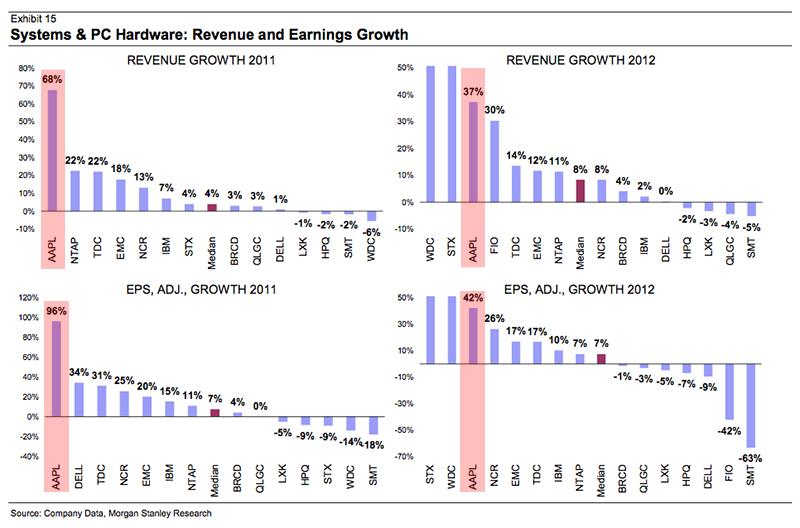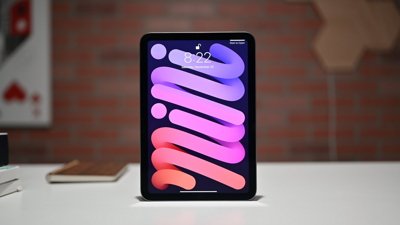Morgan Stanley said in a research note released on Thursday that although the U.S. retail market improved in March, Apple's shipment growth atrophied, falling 4 percent compared to the first quarter of 2011 due to a lack of new hardware.
Analyst Katy Huberty notes Apple refreshed its major notebook line this time last year, which is in line with the release model the company has traditionally followed.
When Apple announced its move from PowerPC to Intel processors in 2005, it changed the name of its notebook line, trading in the PowerBook moniker for the new MacBook and MacBook Pro marks. Since the name swap and first MacBook Pro debut in early 2006, the company has been fairly consistent in rolling out new models twice a year. For example, the latest generation MacBook Pro launched in October 2011 while its predecessor was announced in February of that year.
There are years where the MacBook Pro line sees only one refresh, like 2010's mid-year release where Apple transitioned from Intel's Core 2 Duo chips to newer Core i5 and i7 silicon. The stall was presumably due to a constrained supply of Intel's then-new processors.
Huberty expects faster international growth of the current and yet-to-be-released MacBook Pro and MacBook Air product lines to somewhat offset the early 2012 deceleration. Previous estimates from Morgan Stanley were looking at a 15 percent global Mac unit growth. She goes on to say that the divergence between domestic and international growth has jumped from a previous 4 points to 15 points during the last quarter of 2011.
"More importantly, we expect demand upside from iPhone and iPad (83% of gross profit) to more than offset any Mac downside (9% of gross profit)," Huberty writes.
Apple's iPhone and iPad have seen tremendous adoption rates from both U.S. and international customers, with J.P. Morgan estimating that iPhone shipments could reach 28.1 million in the first quarter of 2012 (the company's second fiscal quarter). The success of the third generation iPad has also boosted estimates, which now stand at 13.8 million shipments in the quarter ending in March.
The Cupertino, Calif., tech giant is set to hold its second quarter earnings call on April 24.
 Mikey Campbell
Mikey Campbell







-m.jpg)






 Christine McKee
Christine McKee
 Amber Neely
Amber Neely
 Andrew Orr
Andrew Orr

 Sponsored Content
Sponsored Content

 William Gallagher
William Gallagher









43 Comments
Well, yeah. Intel's taking its sweet time getting new processors out and Apple's taking its sweet time with the new (internals? redesign?) Mac Pro.
Totally off topic but on a fun note, and I know it has zero meaning, AAPL topped GOOG at close today ...
Totally off topic but on a fun note, and I know it has zero meaning, AAPL topped GOOG at close today ...
Meaningless? But now all the people who know nothing about the stock market can say that Apple is ahead of Google!
Also, they're only $10 billion away from a $600 billion market cap.
Totally off topic but on a fun note, and I know it has zero meaning, AAPL topped GOOG at close today ...
What you mean is: AAPL price per share topped GOOG price per share at close today.
In terms of market share, AAPL exceeded GOOG a long time ago.
My Roth IRA, which is chock-full of AAPL is getting happier every day.
The good news is that overall PC shipments from the entire industry are down even more, so Apple is still leading the way and kicking ass.

Also, Macs make far less money for Apple than iOS devices do, so the incredible demand for iOS devices will easily take up the slack.